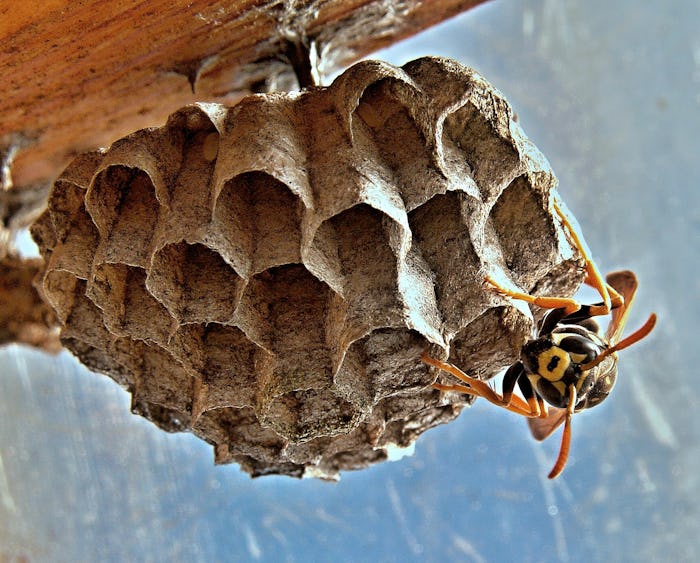Summer is just about here, which means women are in for a resurgence of a barrage of advertising campaigns aimed at making them "better" and "more attractive." From endless diets and workout plans to help us achieve the perfect "beach body" to hair removal commercial after hair removal commercial, the pressure to look at certain way is on. And, as always, that extends to our most private of parts — which could help explain why women are putting wasp nests in their vaginas, if they are. There's certainly a subset of questionable online sellers who are working hard to promote the idea that it's a smart move to use their wasp nest products to cleanse and tighten your vagina.
And doctors are about as on board as you would expect them to be, considering that this so-called product is derived from "oak gall," or the growth that spurts on an oak tree when a gall wasps lays larva into it. According to The New York Daily News, sellers on sites from Etsy to Amazon to herbal medicine retailers are marketing oak gall — often dried, ground up, and mixed with ingredients like sandalwood or nutmeg — as a legitimate way to address all kids of issues that are better left discussed between a patient and a doctor. For example, one seller claims that the concoction has anti-inflammatory properties, reduces vaginal discharge and "unpleasant" odor, helps with "natural vaginal tightening," and more.
Gynecologist Jen Gunter flagged the marketing ploy – which, thankfully, does not seem to have risen to the level of a trend — on her blog recently. She warned that using the oak gall products, which aren't tested or FDA-approved, could lead to vaginal dryness, painful sex, and an increased the risk of HIV transmission. "Here’s a pro-tip, if something burns when you apply it to the vagina it is generally bad for the vagina," she wrote.
Using such products can also have another scary outcome, as assistant professor of clinical obstetrics and gynecology and Director of Minimally Invasive Gynecology at The University of Illinois Jessica Shepherd told Women's Health: obscuring real medical issues from your doctor. If a woman stops her discharge using one of these concoctions, for example, this could make it harder for a medical professional to realize that she has a condition that requires treatment.
So, let's store wasp nest vaginal treatment in the same place we've shelved things like womb detoxing pearls and vaginal steaming — far, far away from any actual vaginas.
